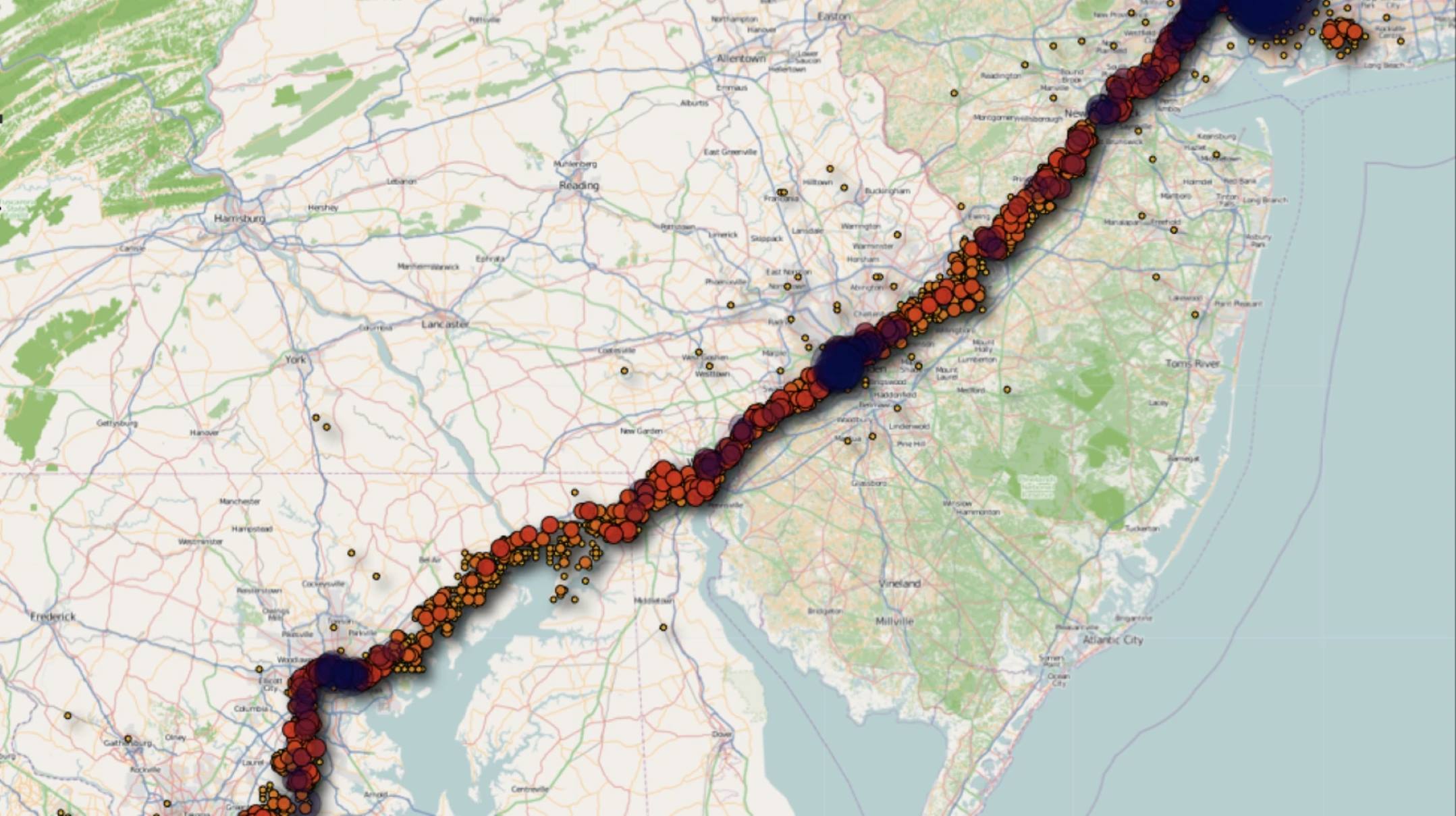
Locationgate is a fascinating place brimming with history, culture, and unique quirks. Ever wondered what makes this spot so special? Locationgate boasts a rich tapestry of stories and facts that will surprise even the most seasoned travelers. From its ancient landmarks to modern-day attractions, there's something for everyone to enjoy. Did you know it’s home to one of the oldest libraries in the world? Or that it hosts an annual festival that attracts visitors from all corners of the globe? Whether you're a history buff, a culture enthusiast, or just curious, these 25 facts about Locationgate will give you a deeper appreciation for this remarkable destination.
Key Takeaways:
- Locationgate, a privacy scandal in 2011, revealed how smartphones tracked users' movements without consent. It led to lawsuits, regulatory scrutiny, and a surge in demand for privacy-focused apps and services.
- The scandal prompted tech companies to prioritize transparency and user consent in data collection. It also influenced the development of new privacy laws and regulations worldwide, shaping how privacy is viewed today.
What is Locationgate?
Locationgate refers to a controversy involving the collection and storage of location data by smartphones and other devices. This issue raised significant privacy concerns among users and led to debates about data security and user consent.
- Locationgate emerged in 2011 when researchers discovered that iPhones were storing users' location data without explicit consent.
- The controversy highlighted how smartphones could track users' movements and store this information in hidden files.
- Apple faced backlash for not informing users about the data collection, leading to lawsuits and regulatory scrutiny.
- Google was also implicated, as Android devices were found to collect similar location data.
- The term "Locationgate" is a play on the Watergate scandal, emphasizing the perceived breach of trust.
How Did Locationgate Affect Users?
The revelation of Locationgate had a profound impact on users, making them more aware of privacy issues and data security.
- Many users felt betrayed, realizing their movements were being tracked without their knowledge.
- The scandal prompted a surge in demand for privacy-focused apps and services.
- Users began to scrutinize app permissions more closely, questioning why certain apps needed location access.
- Some users disabled location services entirely to protect their privacy.
- The controversy led to increased awareness about the importance of reading privacy policies.
Legal and Regulatory Responses to Locationgate
Governments and regulatory bodies around the world took action in response to Locationgate, aiming to protect user privacy.
- In the United States, several class-action lawsuits were filed against Apple and Google.
- The Federal Trade Commission (FTC) launched an investigation into the data collection practices of tech companies.
- European regulators also scrutinized the practices, leading to stricter data protection laws.
- The General Data Protection Regulation (GDPR) in the EU was partly influenced by the need to address such privacy concerns.
- Companies were forced to update their privacy policies and provide clearer information about data collection.
Technological Changes Post-Locationgate
The scandal led to significant changes in how tech companies handle location data and user privacy.
- Apple released a software update that reduced the amount of location data stored on devices.
- Google introduced more transparent location settings, allowing users to control what data was collected.
- Both companies implemented more robust encryption to protect stored location data.
- App developers were required to provide clearer explanations for why they needed location access.
- The scandal spurred innovation in privacy-focused technologies, such as virtual private networks (VPNs) and encrypted messaging apps.
Long-term Impact of Locationgate
Locationgate had lasting effects on the tech industry and user behavior, shaping how privacy is viewed today.
- The scandal led to a cultural shift, with privacy becoming a key concern for consumers.
- Tech companies now prioritize transparency and user consent in their data collection practices.
- Locationgate influenced the development of new privacy laws and regulations worldwide.
- Users are more educated about the risks of data collection and take proactive steps to protect their privacy.
- The controversy served as a wake-up call, highlighting the need for ongoing vigilance in the digital age.
Final Thoughts on Locationgate
Locationgate's impact on privacy and technology can't be ignored. From its inception, it raised eyebrows and sparked debates about data security. The controversy highlighted how companies handle user data, pushing for stricter regulations and transparency.
Understanding the facts about Locationgate helps us grasp the importance of protecting personal information. It serves as a reminder to stay vigilant about privacy settings and the permissions granted to apps and services.
As technology evolves, so do the challenges related to data privacy. Locationgate was a wake-up call, urging users and companies alike to prioritize security. By staying informed and cautious, we can navigate the digital landscape more safely.
Locationgate's legacy continues to influence discussions on privacy, making it a pivotal moment in tech history. Stay aware, stay protected, and always question how your data is used.
Frequently Asked Questions
Was this page helpful?
Our commitment to delivering trustworthy and engaging content is at the heart of what we do. Each fact on our site is contributed by real users like you, bringing a wealth of diverse insights and information. To ensure the highest standards of accuracy and reliability, our dedicated editors meticulously review each submission. This process guarantees that the facts we share are not only fascinating but also credible. Trust in our commitment to quality and authenticity as you explore and learn with us.
